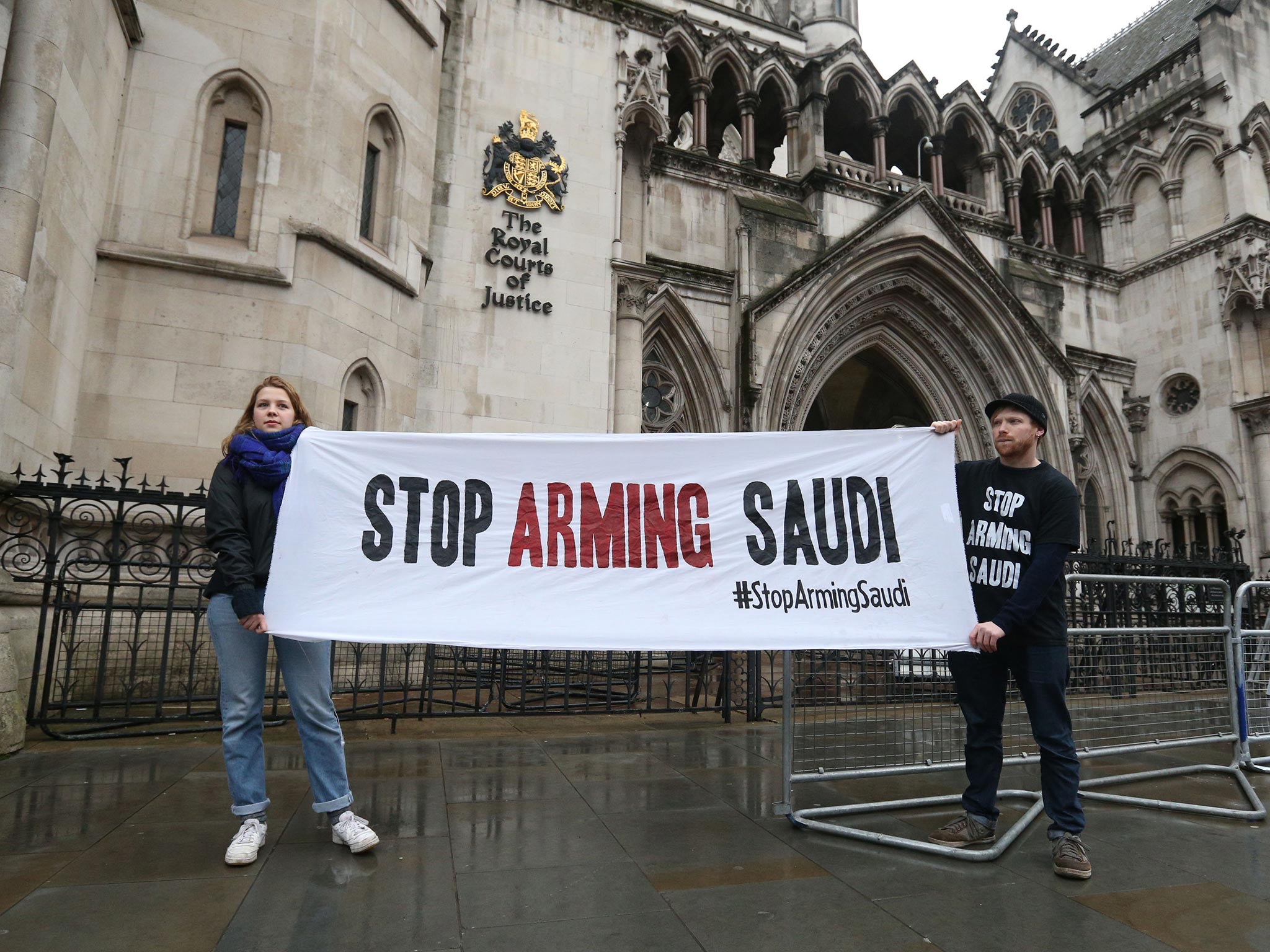Ministers refused to stop bomb sales to Saudi Arabia despite being told to do so by own export control chief
Britain has sold billions in weapons to Saudi Arabia since the country started bombing in Yemen

Your support helps us to tell the story
From reproductive rights to climate change to Big Tech, The Independent is on the ground when the story is developing. Whether it's investigating the financials of Elon Musk's pro-Trump PAC or producing our latest documentary, 'The A Word', which shines a light on the American women fighting for reproductive rights, we know how important it is to parse out the facts from the messaging.
At such a critical moment in US history, we need reporters on the ground. Your donation allows us to keep sending journalists to speak to both sides of the story.
The Independent is trusted by Americans across the entire political spectrum. And unlike many other quality news outlets, we choose not to lock Americans out of our reporting and analysis with paywalls. We believe quality journalism should be available to everyone, paid for by those who can afford it.
Your support makes all the difference.The Government refused to stop the sale of bombs to Saudi Arabia after it was privately advised to do so by the top civil servant in charge of weapons exports control, a court has heard.
Edward Bell, head of the Government’s Export Control Organisation, told the Business Secretary, Sajid Javid, that it would be “prudent and cautious” to stop selling to the Saudi regime amid widespread reports of war crimes by its military in Yemen.
Campaigners today began a legal challenge against the Government in a bid to force ministers to stop issuing export licences for weapons to the autocratic state.
In an email from February 2016 presented to the High Court in London, Mr Bell said: “To be honest – and I was very directly and honest with the Secretary of State – my gut tells me we should suspend.”
“This would be prudent and cautious given the acknowledged gaps in knowledge about Saudi operations. I put this directly to the Secretary of State in these terms.”
Ministers have also publicly been advised to stop sales by MPs on the International Development Committee, the Business Committee, as well as by the European Parliament.
The meeting with Mr Javid was said in the email to have taken place on 10 February 2016 and the email was dated the day after, the court saw.
In separate evidence presented to the court, the head of policy at the Export Control Organisation is quoted as saying the organisation has “significant concerns regarding the acknowledged gaps in knowledge about Saudi targeting processes and about the military objectives of some of the strikes”.
The Ministry of Defence were not able to identify a “valid military target” for all the air strikes Saudi Arabian forces had carried out, the head of policy says – only a majority.
“They cannot be certain that the vast majority of total air strikes that are not being tracked have all been IHL-compliant,” it concludes.
Human rights groups say more than 10,000 people have been killed in Yemen as the Saudi Arabian-led coalition intervenes in the country’s civil war. Schools, hospitals, and food factories have reportedly been hit while the United Nations has declared the situation a “humanitarian catastrophe”.
Campaign Against Arms Trade says the Government is unlawfully failing to suspend the sale of UK arms to Saudi Arabia, despite evidence that the Gulf state is guilty of “repeated and serious breaches” of international humanitarian law.
More than £3.3bn worth of arms has been licenced to Saudi Arabia since the bombing began in March 2015.
The Government says there is no “clear risk” that UK-licensed items might be used to commit a serious violation of humanitarian law. Sajid Javid is no longer in charge of arms exports, the policy area now being the responsibility of Liam Fox’s Department for International Trade.
A Government spokesperson declined to comment on the court case but said: “The UK is playing a leading role in work to find a political solution to the conflict in Yemen and to address the humanitarian crisis.
“We operate one of the most robust export control regimes in the world and keep our defence exports to Saudi Arabia under careful and continual review. Given the current legal proceedings we will not be commenting further outside of court at this stage.”
Additional reporting by PA
Join our commenting forum
Join thought-provoking conversations, follow other Independent readers and see their replies
Comments